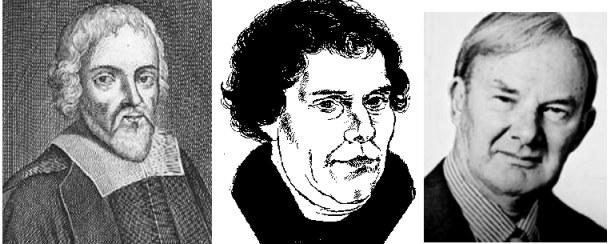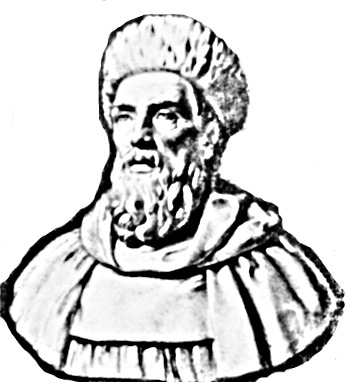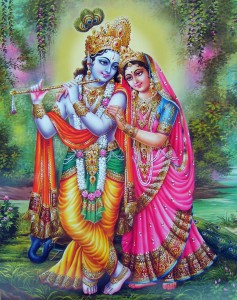podcast 300 – Does the New Testament teach Trinity Monotheism? – with Dale Glover – Part 2
Is God’s spirit in the New Testament supposed to be a self in addition to God and his Son?
Is God’s spirit in the New Testament supposed to be a self in addition to God and his Son?
V.V. Raman is an emeritus professor of Physics at the Rochester Institute of technology, and has written a number of works on science and religion, his Indian heritage, and other subjects relating to the history of science, and the relation of the sciences to the humanities. Also, he’s a poet. Watch his interview by Dr. Robert Lawrence Kuhn here (click the blue button) and read… Read More »Is God a Self? Part 5 – Varadaraja V. Raman
Can these obvious truths pop the bubbles of various theological and christological speculations?

— “Daddy, why do trees branch out?”
— “So you can climb in them, Jimmy.”
Patristic scholars tell us that the doctrine of the trinity was really developed in the 4th century. The question is: what exactly is the ‘development’? If you read many of those scholarly big books on patristic theology, you’ll occasionally come across the idea that there were two major theories of the trinity floating around in the 4th century: the ‘derivation view’ and the ‘generic view’. But what exactly are these two views, and who held them?Read More »Derivation vs. Generic Theories — part 1 (JT)
William Lane Craig is a respected and extremely prolific Christian philosopher. I’d give you his c.v., but it might bring the internet to a standstill. He’s sometimes a bit pugnacious in print, but is very amiable in person. And he’s extremely sharp. His trinitarian co-theorizer, J.P. Moreland, is also influential and inhumanly prolific, and is one of the clearest, best organized writers around. He’s been called a “scrappy” arguer, which is apt, and he’s also a swell guy (I took classes from him at Biola in the early 90s, and I’m grateful for how he influenced me). A Willardite, he also writes books about Christian spirituality, such as this good one. Both Craig and Moreland are well known for their many forays into the popular area, in the form of books on apologetics, public debates and such.

Nice doggie… nice doggie… What’s Cerberus here got to do with the Trinity? Keep reading.
Read More »Moreland’s and Craig’s “Trinity Monotheism” – Part 1
 At long last, we’ve reached the 25th and last chapter of book three of Richard of St. Victor’s De Trinitate! (Here are the other Richard-related posts here @ trinities.)
At long last, we’ve reached the 25th and last chapter of book three of Richard of St. Victor’s De Trinitate! (Here are the other Richard-related posts here @ trinities.)
Richard starts off with the point that for the Persons of the Trinity, unlike the case of any other persons, there is “individuality without plurality” – each is what it is without any plurality of any kind – and “unity without inequality” – I’m not sure what he means by this second phrase. (p. 396)
In contrast, any other person, such as you or me, can be “unequal to himself”, in that we can become greater or lesser over time. (e.g. I’m smarter and morally better now than when I was 14.) And persons like us have multiple properties (we’re not simple). (p. 396) And of a human person, say Barak Obama, we can say that “his power alone is dissimilar to itself… [since] one thing is easy for him, another is difficult and a third is impossible.” (p. 397)
Then he says, “one and the same nature… in one respect is less, in another it is greater, and [so is]… dissimilar and unequal to itself.” (p. 397) So, the same point he made about persons, can also be made about natures. Thus,Read More »Richard of St. Victor’s De Trinitate, Ch. 25 (Dale)
In this episode I get post-debate reflections from the (biblical) unitarian Christian debater, Steve Katsaras. He’s the founding pastor of the Red Words Church in Melbourne, Australia . His sermons are regularly podcasted here. If he sounds a little sleepy, that’s my fault; I asked him to talk to me on the same night as the debate, and he graciously agreed. We discuss highlights of… Read More »podcast 9 – post-debate interview with Pastor Steve Katsaras
The key to understanding the innovative New Testament usage of “Lord” is the much cited Psalm 110:1.

Unlike Redirectors, Revisers don’t change the subject. Unlike Resisters, they don’t claim we should just “live with the tension”. Unlike practitioners of Restraint, they don’t think we can put off the issue. Like Resolvers through Rational Reinterpretation, they have a solution. But they don’t think tricky, new, more careful formulations are what is called for. Rather, something must go out on the rubbish heap. Revisers are usually accused of arrogance, lack of respect for tradition, biblical ignorance, idolatry of human reason, not being Christians at all, and of hating babies and cute little puppies.
Open theists are RevisersRead More »Dealing with Apparent Contradictions: Part 20 – Resolution by Revision

“Stand aside, puny moderns. Or postmoderns. Or whatever you are.”
I thought that Scott and Joseph made some really penetrating comments on the first two posts in this series. Here I want to recap them, so we can discuss how Henry of Ghent (c. 1217-93) a.k.a. The Solemn Doctor would interpret our chart (see the first two posts), specifically, the second, modalistic interpretation I offered.
First, Joseph comes in with some weighty objections to that model (summarized and expanded by me from his comments).Read More »The Latin Trinity Chart 3 – Henry of Ghent to the rescue
 The Clarke-Waterland duel went on for many, many pages in several books, getting increasingly snippy.
The Clarke-Waterland duel went on for many, many pages in several books, getting increasingly snippy.
Last time I said that I thought Waterland was a social-mysterian-trinitarian. But I’m not so sure about the “social” part! He’s very unclear on whether the “Persons” are selves. They’re different somethings, in any case. But in this series, I’m sticking to an exegetical issue.
Here are excerpts of Waterland’s second salvo about the “only God” texts.
[Clarke] had produced John 17:3, 1 Cor. 8:6, Eph. 4:6, which prove that the Father is styled, sometimes, the one God, or only true God; and that he is the God of the Jews, of Abraham, etc. I asked how those texts proved that the Son was not? You say… “very plainly… Can the Son of the God of Abraham (Acts 3:13) be himself that God of Abraham, who glorified his Son?” But why must you here talk of that God, as if it were in opposition to this God, supposing two Gods; that is, supposing the thing is question. …I tell you that this divine Person is not that divine Person, and yet both are one God… (A Second Vindication of Christ’s Divinity in Waterland’s Vindications of Christ’s Divinity, 422-3, original italics, bold added, punctuation slightly modernized)
This is wheel-spinning. Clarke does, and Waterland does not take the passages in question to identity (assert to be numerically identical) the Father and Yahweh.
Clarke had asked whether Waterland thought that the term “Father” in these texts actually includes, i.e. refers to, the Son as well. Waterland clarifies,Read More »DANIEL WATERLAND ON “THE FATHER IS THE ONLY GOD” TEXTS – PART 2
 Last time, what I thought I heard from Steve was this (this is my summary):
Last time, what I thought I heard from Steve was this (this is my summary):
In sum, the one God is a perfect being, a perfect self, who is the Trinity. He has within himself three parts – the Father, the Son, and the Holy Spirit. Each of these parts fully has the (universal) divine nature, and so, each of the essential divine attributes. Each is a divine self. And these three parts are indistinguishable from one another, or nearly so, though they be numerically distinct.
Steve has now responded twice, here and here. These contain a lot of extraneous material, which I’ll pass by. My question is, what did I get wrong above? Here’s what I hear (bulleted):
Right – “nearly so.”
Because he says this nature is shared, I’m going to infer that it is a universal – something capable of being had by multiple subjects.
Steve, it’s not because you think God has multiple attributes. (Yes, I too reject the classical doctrine of simplicity, though I don’t think God has parts.) Rather, I’m trying to figure out what the relation is, in your view, between God/The Trinity and those three Persons. If it isn’t whole-parts, help me out!
Sure you do Read More »What is the Trinity? A Dialogue with Steve Hays – Part 2
Little known fact: overwork causes one’s neck to become invisible! After an embarrassing amount of time, I’ve finally finished my encyclopedia entry on the Trinity for the Stanford Encyclopedia of Philosophy (as well as lengthy supplementary documents on the history of Trinity doctrines, Judaic and Islamic objections, and unitarianism). Since I can’t thank them in the entry, I’d like to thank editors Ed Zalta and… Read More »“Trinity” @ the Stanford Encyclopedia of Philosophy
Can a “mere” human being represent God on the earth? What does the Bible say?
What should we think of Athanasius’s ferocious condemnations of those he termed “Arians”?
 Given my scholarly interests in Hinduism, I had to post a link to this story about the conversion of a Reformed Christian philosopher to a form of Hinduism.
Given my scholarly interests in Hinduism, I had to post a link to this story about the conversion of a Reformed Christian philosopher to a form of Hinduism.
Pictured here are Krishna and his lover Radha. I take it that in Sudduth’s form of Hinduism Krishna is an avatar of Vishnu. Other Hindus consider Krishna to be the high god himself.
There is much art celebrating the love of these two.
The story for me was a bit spoiled when I watched a documentary in which a Hindu, Indian man explained that (at least on some versions) Radha is married to another, and is Krishna’s aunt. Perhaps some would object that I’m not looking at it metaphysically enough. (Update – to be fair, some Hindu sources assert them to be unrelated and married – see comment #11 below.)
In another famous episode, Krishna charms a bunch of cow-herding ladies.
I’m curious to read more about Sudduth’s conversion. How does one get from Calvin’s all-determining triune deity to Vishnu? I wonder if it is by way of fairly mainstream trinitarian modalism…
Myself, as I read Sudduth’s interesting narrative of his conversion I’m not sure where, i.e. with what sort of Christianity, he was starting from. I too have taught the Gita in an academic setting, but I have not had experiences like this:
Around 4:20am (Friday morning) September 16th, I woke suddenly from a deep sleep to the sound of the name of “Krishna” being uttered in some wayRead More »Reformed Christian Philosopher Converts to Hinduism
In what sense, according to Craig and Moreland, are the Father, Son, and Holy Spirit each “divine”? Well, consider Rover. They’d say that the following four things are canine: Rover Rover’s nose Rover’s tail Rover’s left ear So, just as the parts of a dog are just as canine as the dog, so maybe “we could think of the persons of the Trinity as divine… Read More »Trinity Monotheism part 5: “divine”
If the earliest Christians’ answer (re: how one can be a monotheist and yet worship both the one God and Jesus) was a good answer then, why isn’t it a good answer now?